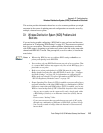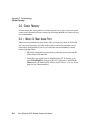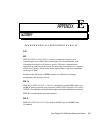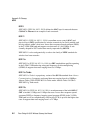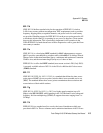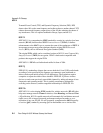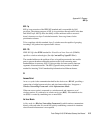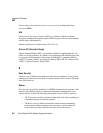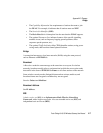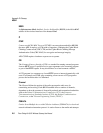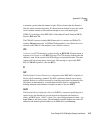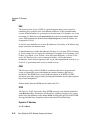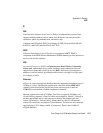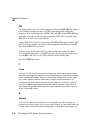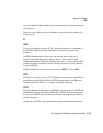Appendix E: Glossary
AES
E-6
Psion Teklogix 9160 G2 Wireless Gateway User Manual
Ad hoc mode is also referred to as peer-to-peer mode or an independent basic
service set (IBSS).
AES
The Advanced Encryption Standard (AES) is a symmetric 128-bit block data
encryption technique developed to replace DES encryption. AES works at multiple
network layers simultaneously.
Further information is available on the NIST Web site.
Atheros XR (Extended Range)
Atheros Extended Range (XR) is a proprietary method for implementing low rate
traffic over longer distances. It is meant to be transparent to XR enabled clients and
access points and is designed to interoperate with the 802.11 standard in 802.11g
and 802.11a modes. There is no support for Atheros XR in 802.11b, Atheros Turbo
5 GHz, or Atheros Dynamic Turbo 5 GHz.
B
Basic Rate Set
The basic rate set defines the transmission rates that are mandatory for any station
wanting to join this wireless network. All stations must be able to receive data at the
rates listed in this set.
Beacon
Beacon frames provide the “heartbeat” of a WLAN, announcing the existence of the
network, and enabling stations to establish and maintain communications in an
orderly fashion. It carries the following information (some of which is optional):
•The Timestamp is used by stations to update their local clock, enabling syn-
chronization among all associated stations.
•The Beacon interval defines the amount of time between transmitting
beacon frames. Before entering power save mode, a station needs the
beacon interval to know when to wake up to receive the beacon.




